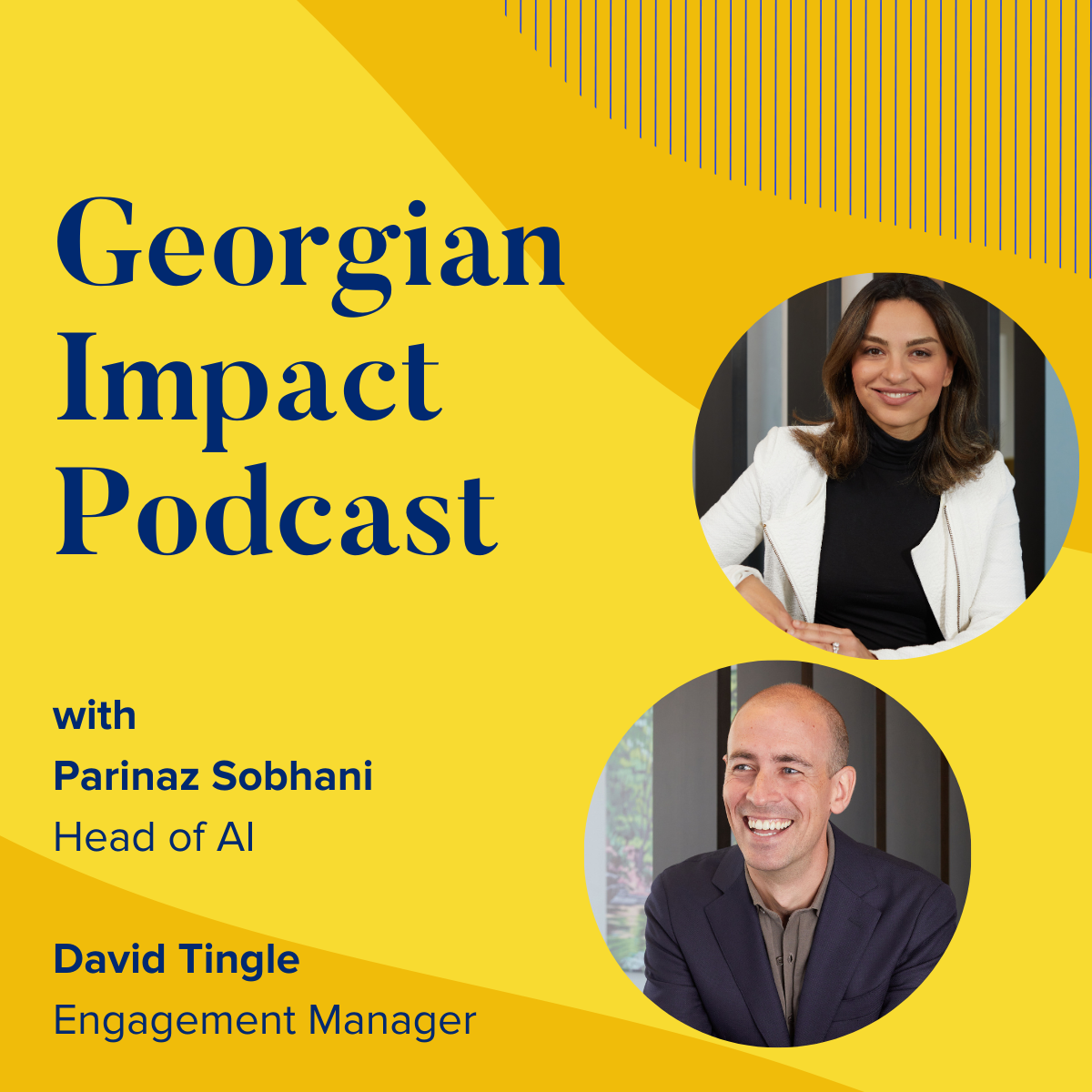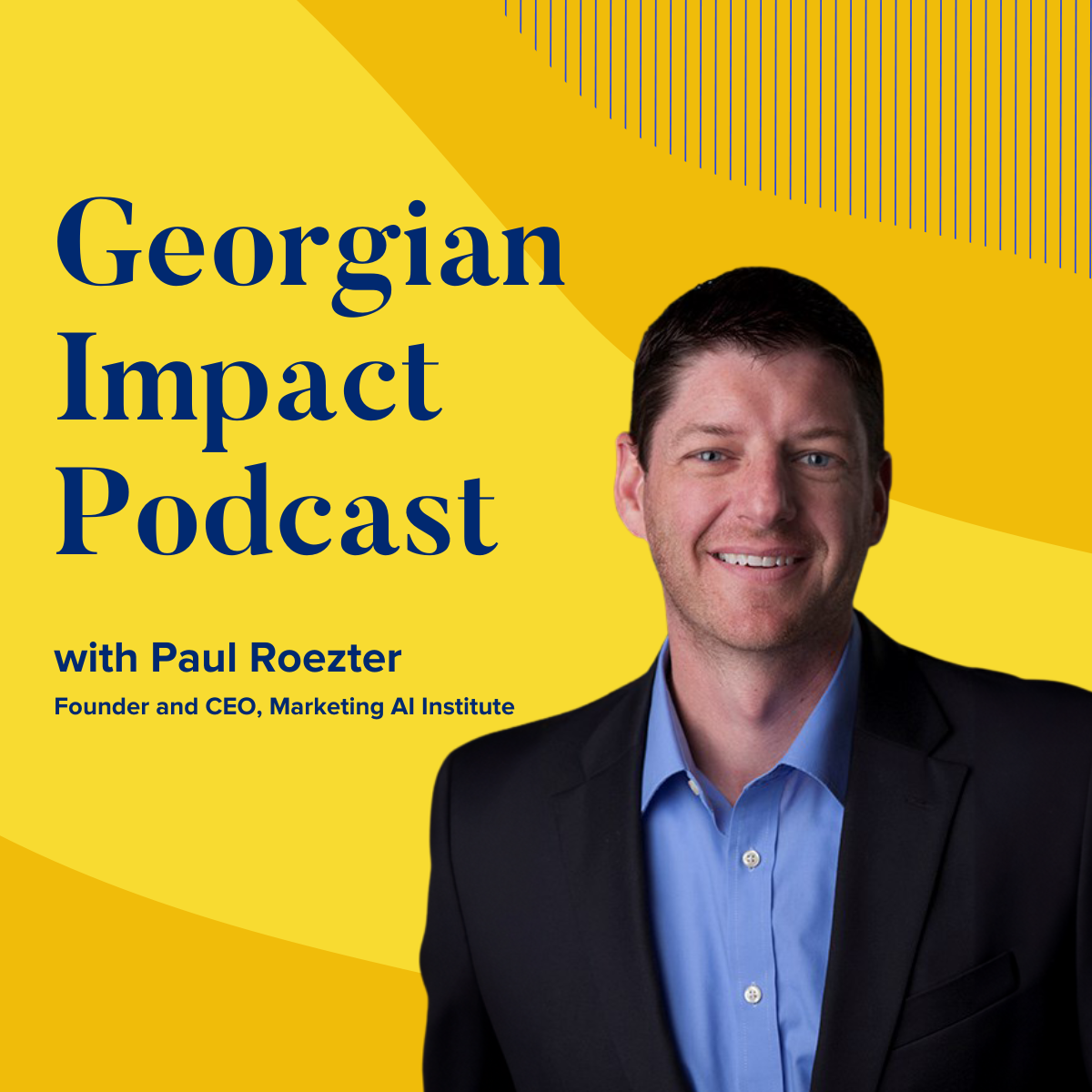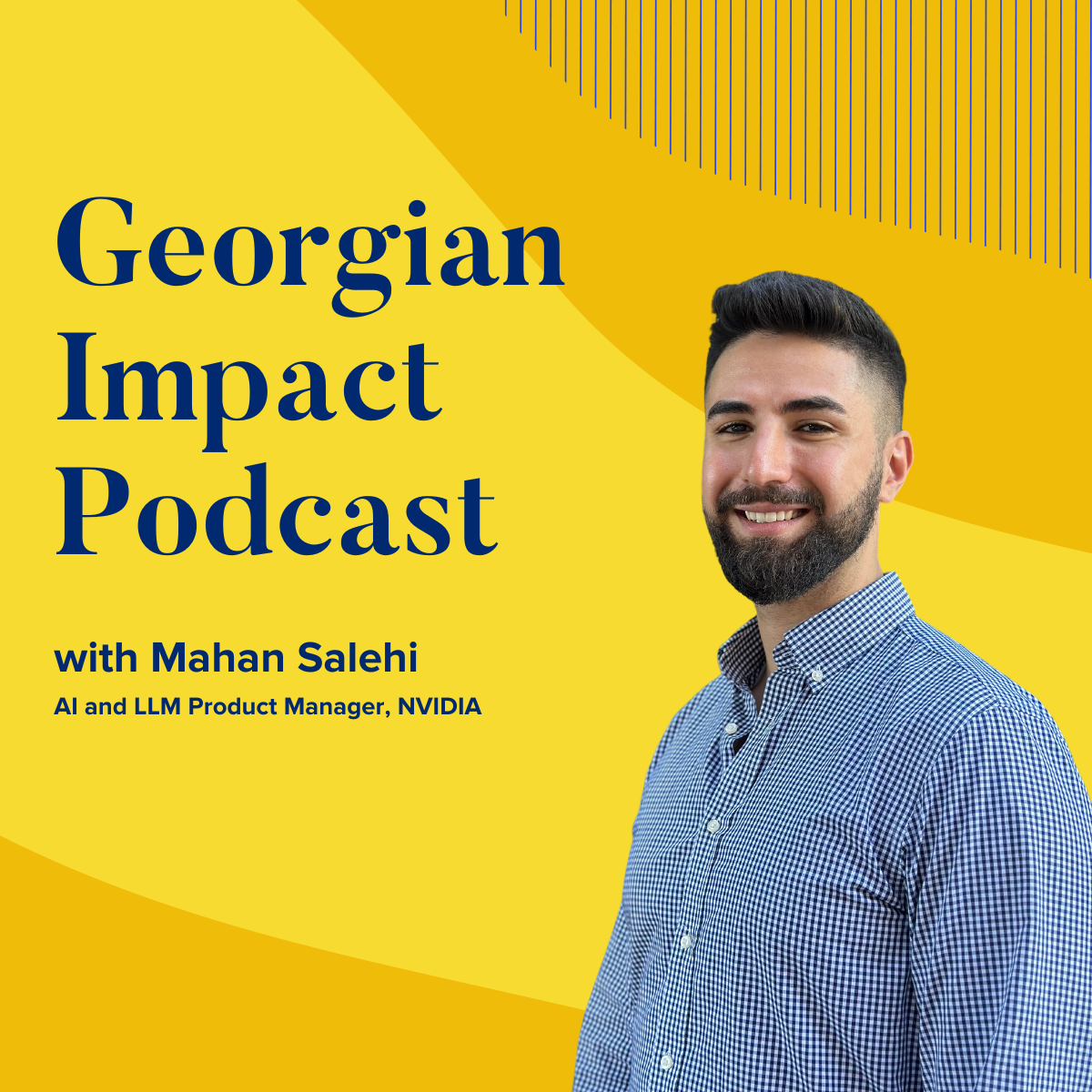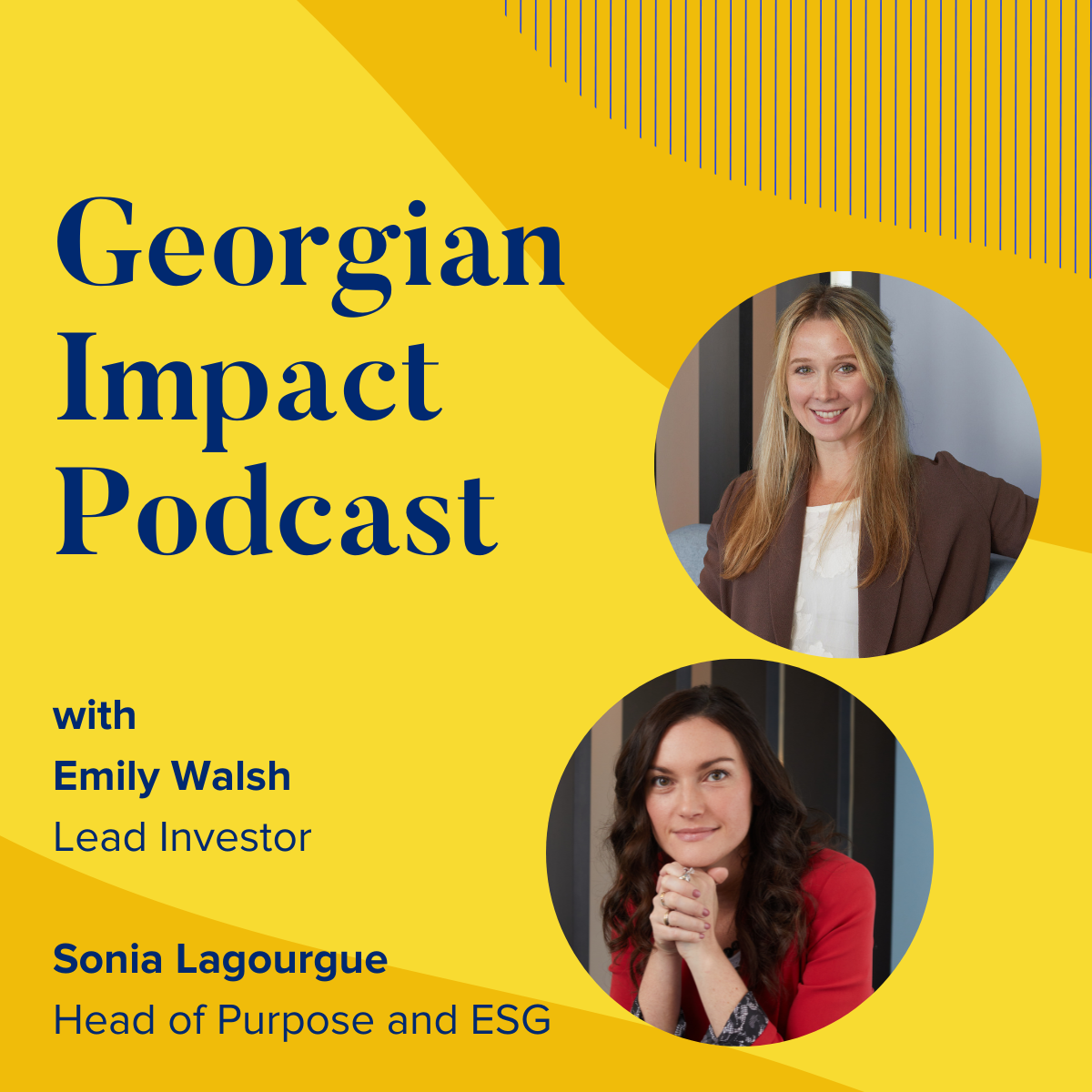Rewind CEO Mike Potter On Backing up the Cloud, the Risk 3rd Party Applications Pose & Building a Time Machine for SaaS Apps
- 0.5
- 1
- 1.25
- 1.5
- 1.75
- 2
John: Let me start by declaring right off the bat, that I'm a huge fan of backing things up, took me a while, but once these taxes and other these life things became electronic, having piles of paper just made no sense. Oh and the agony of shredding. And then I ripped all my CDs to a disc and of course all our photos and they're so huge now, are all digital. So having stuff on the shelf, CDs on boxes or photos, it just wasn't where it's at. So we went digital and being a bit of a geek, I happily put a little spinning disc attached to my wifi router and I was just a happy guy. And then I joined a company and had to backup company stuff. So I encrypted that disc and more geek self- satisfaction. But then I started to think about this stuff, because I overthink everything. These discs don't last a lifetime and that's not good, bearings could wear out, that wasn't good. So all of a sudden I started to obsess. So I got a flash drive that was magic and there was no bearings and it was simple. And then I got terrified because I read that they don't last sitting on your desk, they just lose your data. So of course the answer is the cloud and now I'm using a few different cloud services and there we were, the cloud was the answer. And yet, there's a time for one more wake up call, and now I have to go from my personal story to your business. You see, just because it's SaaS doesn't mean it's backed up for you. Today, we have Mike Potter whose CEO and founder of Rewind and we've got some revelations for your business. So Mike, tell us about yourself and tell us how Rewind came to be.
Mike Potter: We started Rewind in 2015, my friend James Ciesielski started working together on a project and that project was going nowhere. We started this in- browser webpage editor that had nobody using it. And about six months into that project, I said," I've seen this example, at my first startup really had no traction. So I know what we're in for. And this doesn't end well, so let's work on something else." And he said,"What do you want to work on?" And I thought," Backups would be a good idea." Kind of like you described in your intro, right? They're very needed, data is super important. If you've ever lost data, like I have, it's the absolute worst experience of your life. It's a horrible thing to have happened to you. And so I suggested," Let's do backups." And when he said," what do you want to back?" I said," Let's back up Shopify, right? We're in Ottawa, there in Ottawa growing crazy fast, let's sort of hitch our wagon to them. And if things go really, really well, we might be able to work there." That was really honestly the best outcome we could hope for. James said,"That's the stupidest idea I've ever heard of. Why would anyone want to back up the cloud?" And that was when we sort of started investigating and seeing that actually there is this massive need to back up cloud services like Shopify and big commerce and most of the SaaS services that are out there actually. So we launched Rewind in June of 2015, been working on it ever since.
John: That is fantastic. So before we get into Rewind, SaaS and the cloud, what's your take on my introduction. Do you think I'm totally paranoid or is it a healthy paranoia or am I just nuts?
Mike Potter: No, I think it totally makes sense. And I think what a lot of people don't understand is when a SaaS provider has a backup, they have a backup of their system of all of the data, but your data typically resides in a multi- tenant environment, which means that in the database that they're backing up, there are your records. There are my records. There are other people's records, all in this one table and what their backup facility doesn't allow is for them to pick out just my records to restore. So if I have an account on that SaaS provider's application and my account has a problem, their backup is not used to recover my data. It's sort of like an all or nothing proposition. If the whole system crashes, if there's a virus, if there's a fire, if there's a meteorite that hits the servers, they've got a backup, absolutely. And that backup exists for pretty much any reputable SaaS that exists out there. But if your account on that particular platform has a problem, that backup cannot be used to recover your data. And that notion is news to people. They almost don't believe it, to be honest with you. And once they understand that and they understand that their data on a personal level is at risk. If somebody has a problem and logs into their account and deletes their data, if they install a third party app that causes problems, if they upload a CSV file that has an issue, all of those things can cause problems on just their account. And if something happens on just your account, you should have a backup of that, data so that you can recover it in case something happens to your data. It's no different than you wanting to back up your hard drives like you mentioned earlier.
John: I think it's that much worse. I could lose my tax forms and be okay, I'm sort of keeping it for archival, but I'm running my business. I'm running my business on Shopify. I'm running my business on QuickBooks. If I feel like the sliver of no room for error is really slight, you've got to kind of get it. This is a scary space. So this was the revelation, I think for our audience today.
Mike Potter: Those SaaS services being in the cloud, they've certainly enabled an amazing level of collaboration. If you take QuickBooks, for example, there are some fantastically useful applications that can only be done because the data lives in the cloud and you can now collaborate with multiple people on one account. And you can share access to the data with all the people that need to have access to it. You can restrict it down. But the problem is, is that those third party apps are often the causes of problems. So when you're installing these third party apps and they have read and write access to your account, that's a new vector that didn't exist when it was on the desktop, right? You didn't install a third... Well, if you installed a third party plugin, you knew you were at risk of losing your data. And those third party apps are basically the same equivalent thing.
John: I hadn't thought about that because all of these platforms, a la Shopify and QuickBooks, they all do have these marketplaces of add- ons. The degree of testing would be quite challenging to make sure it works. Obviously they have some degree of vetting of these companies, but you're right. And if you do it wrong, the product may be right, but human errors crop into this. So there's a lot of challenges and actually people take things foe granted. But if I think about backups and document management with version control and access control, how does that level of complexity add to this space? Because Shopify might be one shop and one copy, and I understand the issues of third party vendors. But even without that, that seems a little simple perhaps. But what happens with multiple people accessing a system such as QuickBooks might have multiple users hitting that database, versions of what I did last week and the week before, maybe I want to have hierarchical reports. Is that part of the things you think about?
Mike Potter: Yeah. So what Rewind does is it essentially creates that versioning system for all of the data that's in these SaaS applications. So it maintains a version history of every object that's in any of your SaaS providers accounts. So we have a history of all the changes that you've made to a certain Shopify product or big- commerce product, a QuickBooks invoice. We have that history of what it was, when it changed and what changed on that. That's essentially the system that we've built. It's a bit like time machine for your Mac, but instead, it's for your SaaS applications. And the core belief at Rewind is that, that data is extremely valuable. That we can eventually we will make use of it, and we'll be able to generate reports for you to show how your data is changing over time, what's happening to your online storage, your online account. We can monitor things for changes because, we know what it was beforehand and we know what it is now. And so we can constantly be monitoring your account for changes and alerting you to any abnormalities that we see. All sorts of things that we think about of how do we sort of unlock the data in these SaaS applications that traditionally, if you were running an application, you'd be running it on your own server and your own data center. You'd have complete control over the data. You can easily access it. You can pull that into whatever systems you want. Now with SaaS, every application has their own set of APIs. It's extremely difficult to pull that data into other applications. We want to help you sort of unlock that data and provide what we call sort of data freedom so that you're not locked into any particular vendor.
John: And is it application specific? So a Shopify customer will have inventory and customers, QuickBooks online customer will have customers, but accounts that are different. Are you very application specific in terms of... as you add more and more vendors to your kit bag?
Mike Potter: Yeah, yeah. Every platform that we back up, you're right, has a different set of data that we're backing up. So for eCommerce stores, we're backing up, like you said, the product catalog and the theme of the store, the way that the catalog is organized, whether it's through categories or tags, all the product images that are associated with that, and then the customers and the order information. And then for QuickBooks, like you said, it's a totally different, it's got the accounts, it's got transactions, it's got journal entries, it's got invoices. It's also got customers, For Trello, we're backing up boards and the cards that are on the boards, which is completely sort of different from anything else that we're backing up. So every platform that we back up is fairly unique in that situation.
John: Fairly unique in terms of what it is you're backing up, but in concept it's exactly the same in terms of urgent control and recognizing... It's just a matter of what the data is and the metadata that's describing it, so to speak.
Mike Potter: Yeah, exactly. Yeah. So there's definitely common patterns in the data that we're backing up and how we access it.
John: And you mentioned identifying potential areas of problems that have occurred that you might notice that before the end user notices it, in terms of anomalies of some sort. Is that an AI ML type thought or is this just application knowledge that you're bringing to the bear?
Mike Potter: Yeah, probably we've experimented a bit with some artificial intelligence or machine learning algorithms that could properly detect when abnormalities happen in an online store. So an influx of orders, for instance, that might not be expected. We have experimented with that. And certainly when we think about alerts and how that plays into it, machine learning algorithms to understand the store, understand what's expected and what's outside the expected behavior, certainly plays into it. And then there's other situations where it's extremely application specific. So the ability for instance, to look over a QuickBooks account and understand if the account has any errors in it and alerting the customer if a change happened that it's going to cause them an error at the end of a year end, for instance. That's not necessarily machine learning as much as it is sort of understanding the format of a QuickBooks file and how a change might impact them at the end of the quarter, and really understanding the application at sort of a deeper level.
John: Nice, nice. So in terms of the challenges you face and is Rewind as part of our collab company, so we're always working with our companies that help understand the challenges you're facing, how to share it with your peers. Congratulations on your Series A, so as you think about your growth, is it about delivering against your commitments on your website? You've got all the vendors that are coming next. I think Zero is maybe one of the next ones that are coming, or is it adding more features and functions because there's nobody exists out there without competition. How do you balance scale and growth versus features and functions, as you think about your business?
Mike Potter: Yeah. I think the way we think about that right now is we would probably prefer to go as broad as possible and cover off as many SaaS applications as we can, as opposed to going deep into any one application. The exception to that rule might be Shopify because that's where we started in 2015. And it's got the largest percentage of revenue in the company and the most number of customers. So that application may be one where we go a little bit deeper in the coming year and build some additional functionality on top of. But generally speaking, really what's happened to SaaS data is you're signing up for dozens of SaaS services. Companies of small, medium size businesses are signing up. They've got hundreds of SaaS applications that they're using, many of them with critical business information. And our focus is to protect that critical business information. And so our feeling right now is we need to go as broad as possible, to cover as many of those sources of critical business information as possible. And that's our main focus. So as we think it is, we describe it sometimes as a pendulum of swinging from going deep in a platform or going very broad. And I think we're leaning towards more broad than deep right now on a platform, but not to the sole extent that we would ignore the existing platforms that we're on. Because if you think about Shopify, for instance, there's a tremendous amount of opportunity on that platform.
John: Nice, nice. So, you know Georgian pretty well. We know you pretty well. I think to both of us, it's fair to say the culture matters a lot. Talk to me your view of the culture at rewind. I've listened to an interesting podcast here in terms of people working there, your balance of work in life, attrition data, we focus a lot on that. I'd love to get your point of view, how you've you that for Rewind?
Mike Potter: I often think that building a great place to work, it can be a competitive advantage for a company. If you build somewhere where your attrition rate is low, because generally speaking in tech, at least there's lots of turnover on a regular basis. And if you can reduce that turnover, if you can have people who stay with you for a long time, then that can really become a competitive advantage for your company. So we've really focused on making Rewind a great place to work. In fact, that's been a corporate goal of ours since we first started the company. And I've been fortunate to work at some great companies. James, my co- founder, has been fortunate to work at some great companies. We've tried to take the best things that we've had in those other companies and bring them together into one company. And then as we go, we pick up certain things from other companies that we really respect. So some things that we do that we think are fairly unique. We've implemented a program that's called Summer Hours where we take every other Friday in the summer between May 24 and Labor Day, we take that off. I think it's a great way to recharge. The summers in Canada are so short anyway, that giving people an extra long weekend has really been beneficial, especially in the past year and a half for employee mental health and being able to really get away from work. Like you mentioned, we're really big believers in an eight hour workday or a 40 hour work week, as opposed to a 60 hour work week or 80 hour work week, that I think a lot of people who work in startups are generally used to. We're big believers that building software is a creative process. It's a knowledge working process. It's not a widget building process. It's not manual labor. And it's not a matter of the more hours you put in, the more output you get. I think we can all think of examples where we've been trying to solve a problem and can't get anywhere, can't get anywhere. Can't get anywhere, go home, have a sleep, wake up the next morning and it's solved in the first 15 minutes, right? That's just how the brain works is, if it's well rested, if it gets away from the problem and it has a chance to refresh, it'll solve things faster. So we've really been big believers in sort of that philosophy and encouraging our employees to only work 8 hour days, not 10 hour days, not 12 hour days. Work your eight hours and then go home, get involved in your community, get involved in your extracurricular activities. Do other things other than work, because in the end, that's going to benefit you and the company. We've seen that. The company has grown tremendously over the last few years. I remember when we were at Invest Ottawa, I would talk to a lot of start- up executives who were like," Man, I'm working all the time. I'm working 20 hours and I can't get anywhere. Nothing's happening. The business is just not going." I'd just sit there, and I'm like," Do you think that might be a part of your problem? That if you're constantly working on it, you don't get a chance to just step back for a second and say,'Okay, what is the real problem here? What are the things we're trying to solve? And let's brainstorm around solving those problems.'" And I think we've generally done a good job at that. The culture at Rewind is on that's a very positive culture. We've got six core values that we really live. I actually present them to all of our new hires when they're hired. It's the one part of onboarding that I don't allow anyone else to do other than me, because I wanted to just reinforce the importance of those values and certainly respecting people's time in terms of the company respecting your time in terms of how much you work, is actually one of our core values.
John: That's tremendous. So we're talking now mid 2021, we've had 18 months of whatever you want to call it-
Mike Potter: Joy.
John: My question for you is, and it's interesting to me, that acronyms used to be, the techies used to create the acronyms and now its society is creating acronyms, whether it's FOMO or whatever. So today the New York Times talked about RTO, which is return to office, versus WFH, work from home. So how have you evolved? Have your thinking changed on the work from home versus return to office balance as you look forward, assuming we get through this next phase, let's just call that a phase?
Mike Potter: Yeah. Assuming that this Delta variant doesn't come and destroy everything. We were super lucky last year. Our lease expired at the end of May, last year. And so when March, whatever it was 15th or 16th came around and we shut the office down, we didn't renew the lease, we just let it expire. And everyone's been working from home ever since. We've had a very flexible work environment, even pre- pandemic if employees wanted to work from home, they were welcome to work from home. If they wanted to come into the office, they were welcome to come into the office, we had space for them, but we didn't require anyone to be in the office. So transitioning to a work from home model for us was fairly easy. Everyone in the company was pretty much set up to do that. Onboarding, the company's experienced a tremendous amount of growth over the last 18 months. We've gone from approximately 30 to 35 employees up to just over 100 now. So, two thirds of the company has been hired as remote, first employees. And it's obviously proven challenging from an onboarding perspective, from a team comradery perspective. I think that speaks volumes to our people team and how well they've done in building onboarding processes to get people feeling like they're part of Rewind and the team. And then the feeling that we've had on moving back to an office really hasn't changed. What we've heard from employees is they want to maintain that flexibility, that they want the ability to work from home when they need to. And they want an office that they can go you if they want to not work from home. And that's what we're working towards. So we've signed a lease. It starts in September or October of this year. And assuming we can get the renovation done in time and we're allowed to go in, then we will be back in an office in the fall with like I said, a very flexible work environment where if the employees want to come in, they will have a desk, it'll be available to them. And if they want to work from home, that's fine. The other part of this pandemic is we've been able to hire remotely as I think many companies have. And we now have employees all across Canada and we're working again in those cities where we have more than one employee, we're working on setting up office or co- working space for them. And even in the cities where we have one employee, if they're open to working in a co- working space, we can provide somewhere where people don't have to be in their home in order to get their job done, they can actually get out of the house and get back to something that resembles sort of normal.
John: That's fantastic. Well, Rewind's a great story. It was eye opening for me, it was absolutely shocking to realize that all these SaaS solutions do not back stuff up. And here I was worrying about having my tax return sitting in a box somewhere that I have to worry about shredding and it is nothing compared to the issue of having my business, my Shopify business, my QuickBooks operation sitting there and disappearing. Mike Potter, thank you so much for taking the time to be with us and share us. It's eye opening stuff for us, and I wish you the best of luck as you move forward. Thank you so much.
Mike Potter: Thanks John. Great being here.
DESCRIPTION
For most of us, backing up files has become a part of everyday life. Throughout the years, there have been many ways to back up one’s information. We’ve gone from paper, CDs, hard drives, flash drives, and the new king, the cloud.
In this episode of the Georgian Podcast, we’ll be talking to Mike Potter, Co-Founder & CEO of Rewind, to understand how cloud-based storage systems work and what it means for your data.
You’ll hear about:
· How cloud-based SaaS (Software as a Service) storage providers backup their data and what that means for your information
· Why third party applications can cause some issues
· The benefits and inner workings of Rewind's cloud backup system
· Building a culture within a company
Today's Host

Jon Prial

Jessica Galang
Today's Guests







